Yaeko Izumo
Nacimiento : 1909-09-08, Hachinohe, Aomori Prefecture, Japan
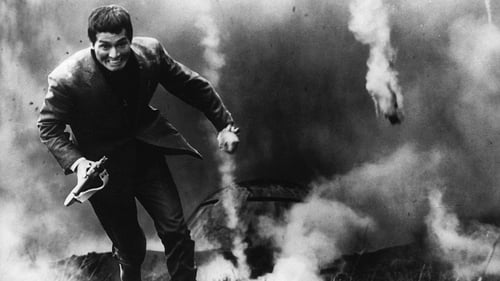
A nerdy young college instructor named Shinji Kikyo returns home one day to find himself the target of a mad assassin. Surviving somewhat miraculously, he fends off other assassins and with the help of reporter Keiko Tsurumaki and car mechanic Bill Otomo, eventually discovering that a "population control" association is really an assassination squad led by Shogo Mizorogi, who has been training patients of a mental asylum to become killers.

When an only child is struck by a car and dies, the child's mother seeks vengeance against the driver in this thrilling drama. The car was driven by the wife of a company president who is having an affair. The woman's husband manages to buy silence about the incident, but the victim's mother discovers the identity of the driver. After she secures a job in the home of the company president and his philandering spouse, the woman plans to murder the couple's son when he reaches the age of her late son.
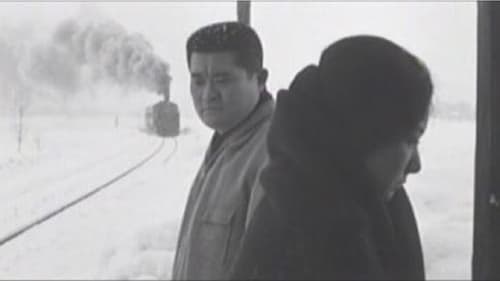
Young widow Ine is suffering under the harsh treatment of her mother in law. As a former Geisha, Ine had struggled to be accepted into the well-established Rokujo family from the beginning. With the support of Jiro, a young man Ine's late husband had saved from homelessness as a young boy, Ine tries to keep the family's heritage of silk processing alive. Their close relationship soon causes gossip among the villagers and threaten Ine's position in the family even further ...
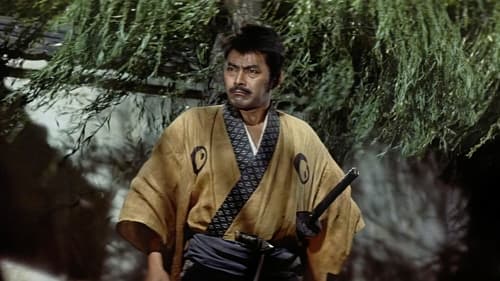
Esta impresionante historia épica ha sido a veces etiquetada como la versión japonesa de "Lo Que El Viento Se Llevó". Chusha Ichikawa personifica a un señor feudal poderoso y despiadado que lucha contra el virtuoso y joven noble, Yuzo Kayama. Ichikawa encuentra una victoria parcial cuando engaña a Kayama y lo convence de hacerse el Hara Kiri. La venganza será realizada por los cuarenta y siete samuráis de Kayama. Basada en una leyenda japonesa venerable, la historia de Chushingura ha sido filmada en varias ocasiones, pero sólo la versión de 1941 (47 Ronin) estuvo a la altura de la versión de 1962, del gran director Hiroshi Inagaki.
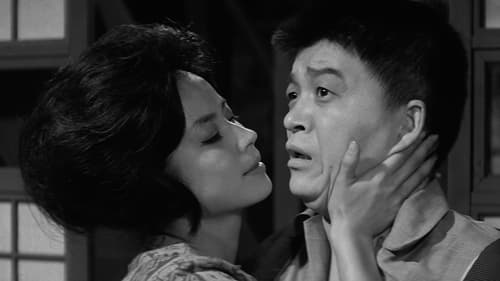
A fines de la década de 1950 se prohibió la prostitución en Japón y si se encontraba a una mujer ejerciendo esta profesión, se la enviaba a un reformatorio. Esta es la historia de una de estas valientes mujeres Kuniko que sale del reformatorio y trata de construir una nueva vida.
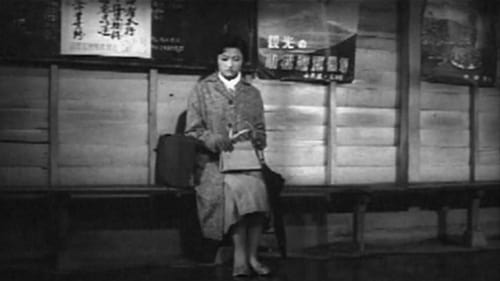
An Ishiro Honda film.

May Kawaguchi is a famous Japanese fashion designer. Returning to Tokyo from her home in New York, she travels incognito with a tour group, in hopes of having a quiet vacation without being noticed. But she is spotted and the press has a field-day with the returning celebrity. Her hopes of rest shattered, she agrees to put on a large-scale fashion show.

O-kiku
On Wings of Love is a 1957 Japanese romantic musical film directed by Toshio Sugie. It was Toho's highest-grossing film of the year and the first film released in Tohoscope.

It's a man's world. Shimamura, an artist, comes to this snowbound town to rejuvenate himself. He connects with Komako, a geisha he met on a previous trip, and it seems like love. She's the foster daughter of a local family, almost engaged to the family's son Yukio, now dying of consumption. He's tended by his sister Yuko who's angry at Komako for abandoning her brother. Shimamura returns to Tokyo but promises he will be back soon. In anticipation of his return, Komako breaks with her patron and her family loses their home. Complications arise when Shimamura doesn't come back as promised. Then Komako discovers that he and Yuko knew each other in Tokyo. Can Komako escape destiny?
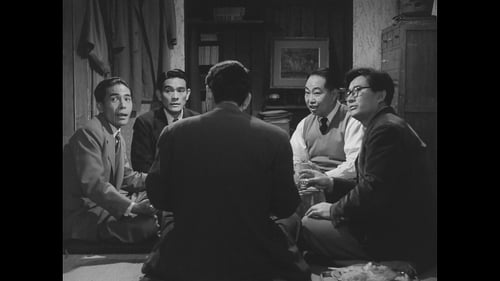
Matsuno Katakura
A husband and wife's pet peeves and minor irritations escalate into major rifts and animosity.
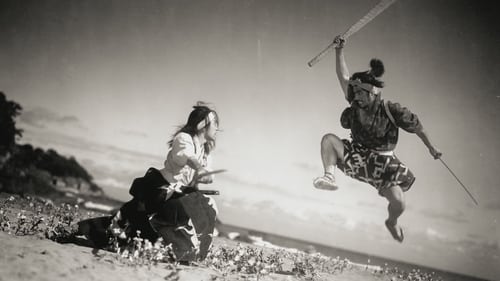
(uncredited)
Takezo abandona su condición de samurai errante para vivir tranquila y humildemente con su amada Otsu, rechazando trabajar como maestro samurai para el líder del clan más poderoso del Japón. No obstante, Takezo accede a luchar con el joven y habilidoso guerrero Sasaki Kojiro. El combate final tendrá lugar en la isla Ganryu.

Ballroom Grandmother
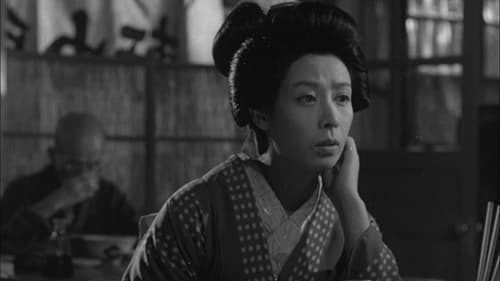
The story of a couple, a spoiled son and a down-to-earth girl, in Osaka in the early Showa era. The film won the prestigious Blue Ribbon awards for best director, best actor (Morishige) and best actress (Awashima), and the Mainichi Concours award for best actor and best screenplay (Yasumi Toshio). It ranked second (after Naruse Mikio’s Ukigumo) on the Kinema Junpō top ten films for the year.

Maid at the Nagoya inn
1955 Toho adaptation of Natsume's novel.

(uncredited)
An Ishiro Honda film.
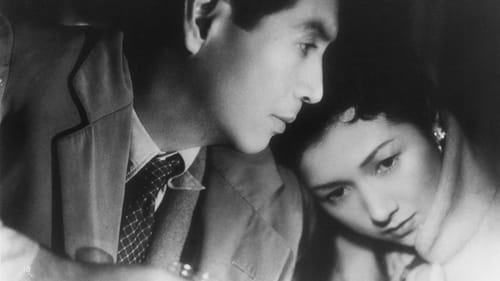
Yukiko y Tomioka fueron amantes durante la II Guerra Mundial, que pasaron en el sudeste asiático. Terminado el conflicto, Yukiko vuelve a Tokio en busca de Tomioka, al que cree divorciado, pero él sigue casado. A partir de ese momento su relación alterna separaciones y reencuentros, mientras otros hombres y mujeres pasan por sus vidas. (FILMAFFINITY)
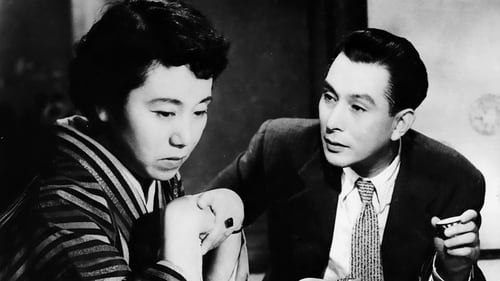
¿Cómo es la vida de una Geisha una vez su belleza se ha desvanecido y se ha retirado? Kin ha ahorrado dinero y se ha convertido en una rica prestamista, pasando sus días cobrando deudas. Incluso sus mejores amigas, Tomi, Nobu y Tamae, que eran sus compañeras Geishas, están ahora en deuda con ella. Para todas ellas, el glamour de sus jóvenes vidas ha pasado; Tomi y Tamae tienen hijos, pero sus hijos las han decepcionado. Kin tiene dos antiguos amantes que aún la persiguen; a uno lo quiere ver, y al otro no. Pero incluso el que recuerda con cariño, cuando aparece, resulta ser una decepción.
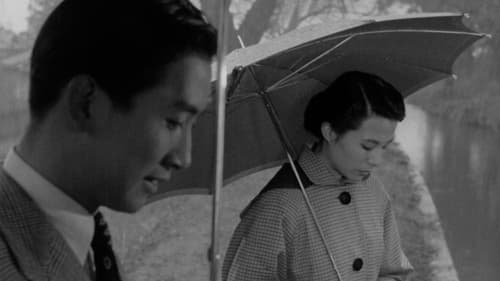
Un hombre triste y preocupado, Reikichi Mayumi (Masayuki Mori), encuentra un nuevo trabajo cinco años después del final de la Segunda Guerra Mundial. Él escribirá cartas de amor de otras personas. Sus ideas sobre el amor y sus principios personales serán probados cuando se reencuentra con su ex novia, Michiko (Yoshigo Kuga), una mujer con un pasado oscuro marcado por la guerra.

1953 jidaigeki directed by Nobuo Nakagawa of Jigoku and Ghost of Yotsuya fame.

A married couple looking for an apartment move in with the husband's co-worker, a widower. The husband becomes jealous of the widower and his wife.

O-Hide
An Ishiro Honda film.
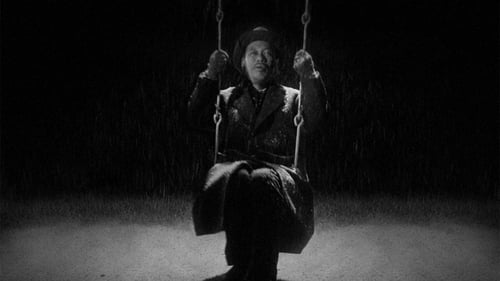
Housewife (uncredited)
Kanji Watanabe es un viejo funcionario público que arrastra una vida monótona y gris; sin embargo, no es consciente del vacío de su existencia hasta que le diagnostican un cáncer incurable. Con la certeza de que el fin de sus días se acerca, surge en él la necesidad de buscarle un sentido a la vida. Y cuando lo consigue se produce un cambio radical en su actitud respecto a los demás.
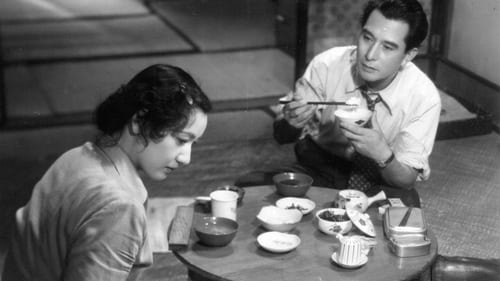
Situada poco después de la Segunda Guerra Mundial, El almuerzo cuenta las dificultades matrimoniales entre el salaryman Hatsunosuke y su mujer Michiyo. Se centra en la crisis emocional de una ama de casa aburrida. El tedio de su vida doméstica -consumida por la repetición de labores como cocinar y limpiar- aumenta con la visita de la sobrina de su marido, Satoko. Su llegada y la excesiva atención que le presta su marido, provocan el aumento de la infelicidad de Michiyo, forzada a enfrentarse con su futuro
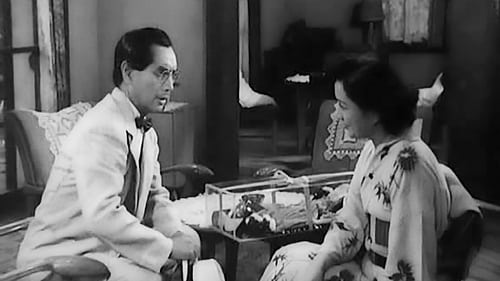
Set in post-war Japan, The Lady of Musashino tells the story of Michiko, a disillusioned young woman trapped in a loveless marriage. She confides in her younger cousin, Tsutomo, and the two become close, but decide not to consummate their affair. He instead becomes involved with the flirtatious Tomiko, who is also conducting an affair with Michiko's husband. When Michiko finds that her husband has abandoned her, she decides to take her fate into her own hands.
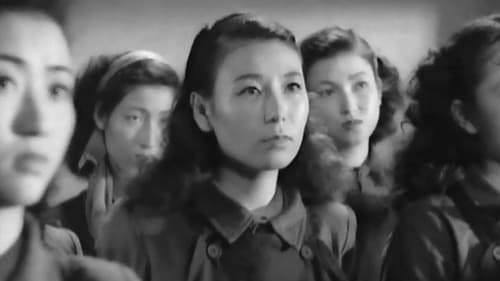
The critical establishment was clearly not prepared to accept a woman's prison film featuring former prostitutes recovering from venereal diseases, unwanted pregnancies, and estranged lovers. With its cat fights, hysterical tantrums, film noir lighting, and dramatic music, White Beast is indicative of the new influences of the Hollywood psychological thriller on Naruse. Caged (John Cromwell, 1950) initiated a cycle of women's prison movies in the United States that may or may not have been shown in Japan, but the stylistics of White Beast draw on the same paranoid woman's films and film noir conventions that preceded the American cycle.
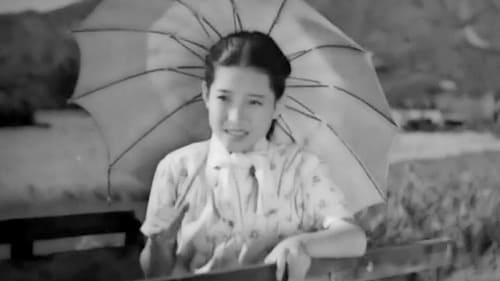
Three humorous love stories set in rural Japan.

Female Teacher B
Slice of life film centered around a couple of years in the life of a rural high school girl.
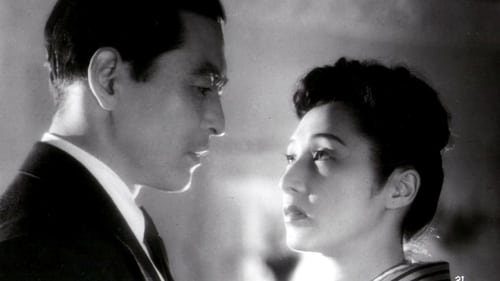
A romance with political overtones about the relationship of a sheltered bourgeois woman and a doctor who devotes himself to caring for the poor. Over a ten-year period - from 1936 through the war - they find each other and are separated again by the events of those tumultuous days.

Kiyoshi, un joven oficial de clase acomodada, es enviado a la Península de Izu, cerca de Tokio. No hay lugar dónde vivir y el templo local permanece lleno de gente que ha debido alejarse de sus hogares como consecuencia de la guerra. Unos lugareños le indican a Kiyoshi que el dueño de un restaurante cercano y padre de dos hijas solteras tiene una habitación libre en su casa. Las relaciones entre los miembros de la familia no volverán a ser las mismas luego de la llegada del nuevo inquilino.
Estrenada el 30 de agosto de 1945, apenas dos semanas después de la rendición nipona, Las jóvenes de Izu fue el primer estreno cinematográfico japonés luego del fin de la Segunda Guerra. Gosho había realizado apenas cuatro películas durante esos años y ninguna de ellas puede ser considerada artículo de propaganda.

Japanese propaganda film about the Normanton Incident.

A nurse's tale of self-sacrifice during wartime. The title is borrowed from a patriotic song made popular by singer Hamako Watanabe during the Second Sino-Japanese War.

An older sister and brother (Mieko Takamine and Masayoshi Otsuka) come to visit their grandfather (Takeshi Sakamoto) who lives deep in the mountains. As for their parents, father was serving in the South Seas and mother died of illness on her way home. So, the brother, who is still young, will live alone with his grandfather whilst the sister goes away to study to become a teacher.
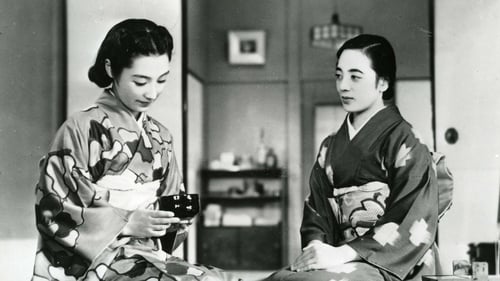
Después de la muerte del patriarca, los Toda, una familia de clase alta, está posando para una foto. Al mismo tiempo que todos lamentan la muerte del padre, se enteran de que éste les ha dejado una deuda considerable.

A reformatory in the remote countryside houses 200 delinquents and problem children. The teachers and caretakers face much trouble. The school is often short on water, and one day, the well runs dry.

Mizutani
Movie about a devoted and single woman and her daughter. The mother's nickname is "Bokuseki" (wooden head) because of his supposed stubbornness. No.10 in the list of "The 10 best films of 1940" by Kinema Junpo.

Umezawa
A spirited young teacher challenges the conservative school employing her with liberal thinking and teaching methods.

Apartment landlady
Melodrama about a talented singer who finally makes her debut

Jie (Michiko Kuwano) attended a women's university with the financial support of her geisha sister Oha (Hiroko Kawasaki) and became a lawyer. The aim. Michiko (Kuniko Miyake), one of the seven best friends from the same women's college, is getting married. The man she's marrying is her sister's lover.

Eiko is an innocent young lady born into a wealthy family with nothing to offer. She was good at singing, and lived her life playing around with her cronies, organizing music concerts and so on. However, things change when her father's business fails and she was suddenly thrown out into the world without any foundation. Eiko has no one to support her after she loses her social status, and her only tutor, Shinnosuke (Natsukawa Daijiro) was the only one who was sincere. Eiko is a stickler for using everything she can get her hands on, and she quickly moves into Shinnosuke's house.

Haruko Minezawa, nurse
A young doctor, Kozo Tsumura, falls for young nurse Katsue Takaishi. But she's got a secret: she's a widow with a son. Kozo and Katsue decide to run away to Kyoto, but her child suddenly became sick and she just missed the train and Kozo. She makes it to Kyoto finally, but is unable to meet him. Plus she isn't accepted into Kyoto society. She goes back to her hometown and tries to forget him. She quits the hospital to concentrate on her singing. She makes her professional debut with the hit "Aizen Katsura". Kozo is in the audience.

dancer in 'Carmen'
Pre-war Asakusa was a riotous district of cabarets, dance-halls and brothels - a striking backdrop for Shimazu's story of innocence and experience. Pretty, young Reiko is the new dancer in an infamous theatre troupe, and her fellow performers try to protect her virtue in a land of vice. Meanwhile, an ageing actor wants to be a hero off stage as well as on, and the troupe matriarch Marie has to keep them all together.

Oteru, the maid
Three men fall in love with the same young girl who works in a tonkatsu restaurant in the Shitamachi district of Tokyo.

Maid
Episode in the life of a composer of a popular Japanese song.

The eldest daughter of a noble family is in love with an aviator while being courted by a fellow aristocrat she thinks is a dullard. This part is told from the perspective of Akemi.
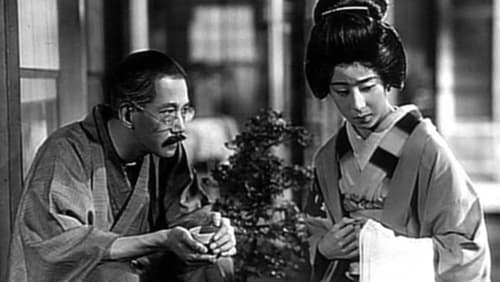
Family drama. A middle-aged father has just married off his third daughter, but still has his nine year old son to raise whom he resents as he was unwanted. (British Film Institute)

If you throw this child away

Kodakara Sodo (The Treasure That Is Children) is a 1935 black and white Japanese silent film with benshi accompaniment directed by Torajiro Saito. This is a rare example of a silent Japanese slapstick film that has survived to this day.


































